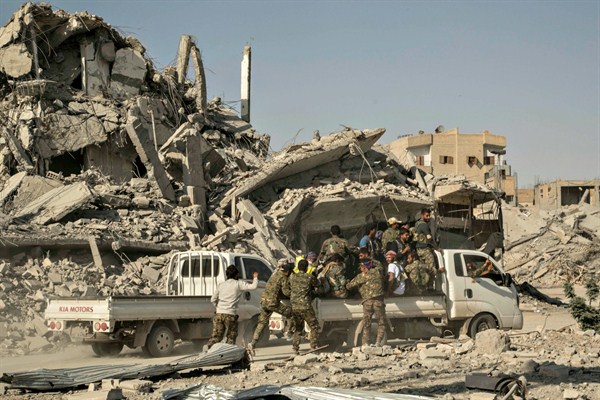The Syrian war has torn the United Nations apart many times over. There is more damage for it to do yet. While Syria may be stumbling toward some sort of peace, the U.N.’s role in assisting this process is likely to be controversial for many years ahead.
U.N. peacebuilders are likely to hold a very weak hand when it comes to dealing with the Syrian regime and its international backers. The organization has been accused of kow-towing to human rights abusers in cases such as Sudan and Myanmar, neither of which benefits from as much support. What principles should guide its potential future role in Syria?
The U.N. has been intimately engaged in Syria since the violence began in 2011. International officials have been dealing with the conflict from multiple angles, ranging from cataloguing human rights abuses to disposing of chemical weapons. From an early stage, there was also an assumption that the U.N. would have a major role in rebuilding Syria once the war stopped, even if stopping it proved harder and harder as the years went by.

